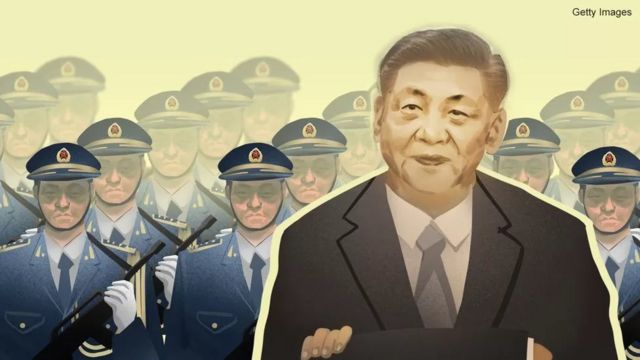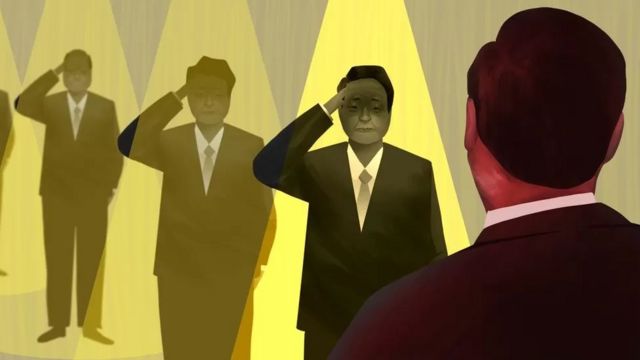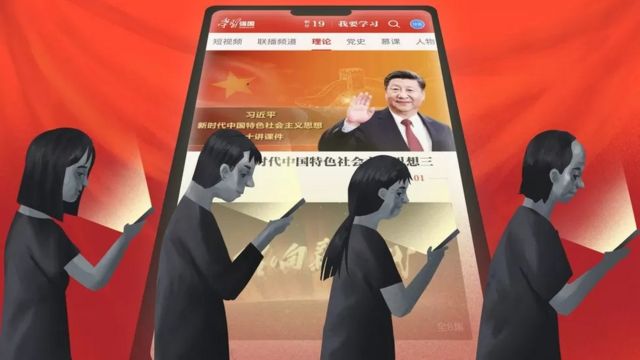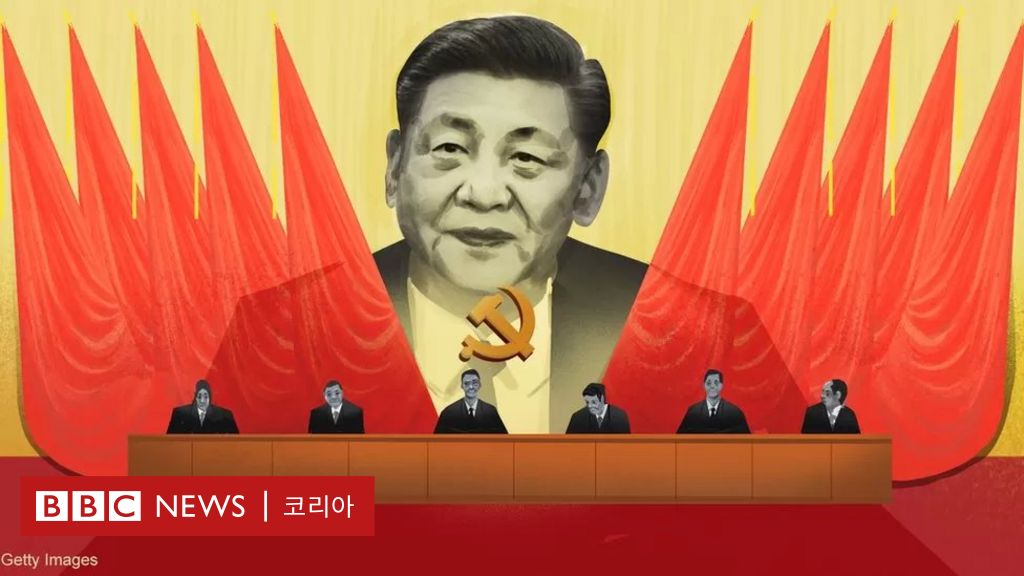- Grace Choi, Sylvia Chang
- BBC World Service
32 minutes ago
source of photos, Getty Images
Few would have predicted that Chinese President Xi Jinping would become the most powerful leader in history in recent decades. But now President Xi Jinping is about to be re-elected for a historic third term.
Ten years ago, little was known about Xi Jinping. It was just that he was from “Shenggol” who had a father who was a revolutionary veteran of the Chinese Communist Party.
This background played a decisive role when Xi Jinping gained the support of the Chinese Communist Party (CCP) leadership and strengthened his power. Party elders usually wielded political influence even after retirement.
“Before Xi Jinping reached a high position, it was considered a compromise with everyone,” said Joseph Fusmith, who studies elite Chinese politics at Boston University.
However, 10 years after his tenure as president, Xi Jinping’s authority is stronger than anyone else, and his power appears to be unmatched. What happened?
muzzle of a gun
The founder of the Communist Party of China, Mao Zedong, once said, “Political power comes from the barrel of the gun.”
After the founding of the People’s Republic of China in 1949, Mao made it clear that the People’s Liberation Army (PLA) was controlled by the party, not the state. Subsequently, the General Secretary of the Communist Party of China was chairman of the Central Military Commission (CMC).

source of photos, Getty Images
Xi Jinping was luckier than his predecessor Hu Jintao. It was because he wasted no time in removing the opposition within the military by becoming chairman of the committee.
The most shocking incidents occurred in 2014 and 2015 when former Central Military Commission Vice President Xu Caihou and former People’s Liberation Army general Guo Boshiung were charged with corruption.
“The two men in power were already retired, but Xi Jinping targeted them to lessen Jiang’s influence within the People’s Liberation Army,” said Joel Wortnow, senior research fellow at the National Defense University. NDU) managed by the Pentagon.
“We have sent a strong message to active duty military officials that no one who stands up to Xi Jinping’s power will be spared,” he added.
In 2015, Xi Jinping also carried out a total military reorganization. The 4 general divisions (Department of General Staff, Department of General Policy, Department of General Staff, Department of General Equipment) have been abolished and replaced with 15 functional departments.
As a result of the military reorganization, the Central Military Commission has issued orders directly to various military sectors, and the Financial Audit Department reports directly to the Central Military Commission, explains Wotnow.
This situation shows, above all, absolute loyalty to Xi Jinping, and similar cases are repeated again.
Last month, China’s state military newspaper, the People’s Liberation Army Daily, ran an article emphasizing the general command of the Central Military Commission.
Timothy Heath, chief international defense researcher at the US think tank RAND Corporation, said: “By sending such a message, it is easier to respond when the power of a senior People’s Liberation Army officer who might one day oppose Xi. Jinping grows “Party loyalty means that the People’s Liberation Army must carry out all orders for party power and Xi Jinping’s reign,” he said.
Loyalty comes first
If you have secured the “muzzle”, you must also fully check the “hilt” for internal control.
Two years after Xi’s inauguration, the authorities arrested Zhou Yongkang, a former head of public security, on bribery charges. In China, high-ranking corrupt officials are called “tigers”. Zhou Yongkang was close to Xi’s rival, another “sacred bone” Bo Lai.
The investigation into Zhou Yongkang broke the unspoken principle of not punishing the Standing Committee of the Politburo, the highest decision-making body, and caused a great political shock.
Neil Thomas, China’s chief analyst at Eurasia Group, said Xi was “revealed as a ruthless and intelligent politician who persevered and passed the test before gaining great power.” ”

Observers say Xi Jinping’s anti-corruption campaign was also used to rid the party of internal rivals and other factions.
Over the past decade, over 4.7 million people have been investigated by the anti-corruption authorities.
Victor Si, a political scientist at the University of California, San Diego, said, “Over the past two years, President Xi has also purged high-level law enforcement officials who initially supported his administration.
In addition, Xi has placed his people in key positions in the region, as party secretary in major cities such as Beijing, Shanghai and Chongqing.
Thomas said this position is important as it is a place to “interpret and apply party policies in the homes of millions” and that at least 24 of the party’s 31 provincial employees are political allies of Xi Jinping, who have known or studied with family members. .
Meanwhile, according to a poll by Wu Guoguang, a professor of political science at the University of Victoria in Canada, most of the 281 members of the provincial standing committee have been appointed by Xi.
personal branding strategy
“Xi Jinping’s thinking on socialism with Chinese characteristics for a new era” was stipulated in the 2018 Chinese constitution.
Although the title is too long, it was a job to solidify Xi Jinping’s legacy for an “ideology” named after him to be included in the constitution.
The only precedent was Mao Zedong. Even the father of modernization in China, Deng Xiaoping, had only one “theory” named after him, and the names of Xi Jinping’s immediate predecessors, Jiang Zemin and Hu Jintao, were not tied to ideas or theories.
The exact meaning of Xi Jinping’s thinking is controversial, but experts say it’s not the meaning that matters, but the transfer of power.
Jean-Pierre Cavestan, emeritus professor of political science at Hong Kong Baptist University, said: “Xi Jinping’s ideas are primarily aimed at strengthening his legitimacy and power over the Chinese Communist Party and all other figures. It is part of a new personality cult that connects us with the Chinese emperor who was successful with us. ”
According to Hong Kong newspaper Ming Pao, dozens of universities and institutions in China, including prestigious universities in Beijing and Tsinghua, have set up research centers named after Xi.

In August, the Chinese Ministry of Education announced a plan to include Xi Jinping’s thinking in the national curriculum.
In 2019, a mobile app called “Xuexi Qiangguo” was launched, the name of which is interpreted as a double meaning to learn from President Xi and strengthen China, and the app provided a quiz on Xi Jinping’s thinking.
Andrew Nathan, a professor of political science at Columbia University, said Xi “believes he has the right ideas and that everyone should follow them.”
ILLUSTRA TION BY Davies Suria

